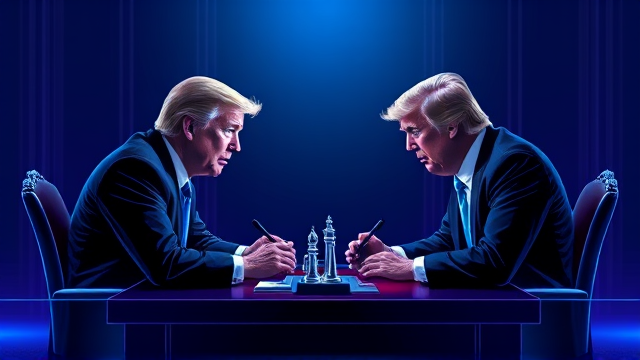Trump and Zelensky to Discuss Ukraine Peace After Gaza Ceasefire
The announcement that US President Donald Trump will meet Ukraine President Volodymyr Zelensky for a working lunch this Friday, confirmed by a senior White House official on Monday, sends a powerful geopolitical signal, arriving in the immediate, fragile aftermath of a successfully brokered Gaza ceasefire. This is not merely a diplomatic lunch; it is a strategic maneuver on a high-stakes global chessboard, where the pieces are nations and the gambits involve territorial integrity and superpower influence.The two leaders, having already spoken twice over the weekend, are moving with a pace that suggests a narrowing window of opportunity, with Zelensky urgently pressing for enhanced access to US-made weaponry to counter the relentless, grinding Russian offensive that has sought to redraw Europe's borders by force. Zelensky’s own framing of the Gaza ceasefire as 'extraordinary' and a source of 'hope' is a masterstroke of diplomatic rhetoric, explicitly drawing a parallel that invites Trump to replicate that mediator's success in Eastern Europe.This creates a tangible precedent, a proof-of-concept that the Trump administration can, when it chooses to apply its full political capital, orchestrate a cessation of hostilities between intractable adversaries. For Kyiv, the calculation is stark: if a conflict as historically complex and emotionally charged as the one in Gaza can be paused, then surely the raw, imperialist aggression faced by Ukraine merits a similar, if not greater, concerted peacemaking effort.The risk calculus here is immense. A successful negotiation, leveraging the momentum from the Middle East, could potentially isolate the Kremlin and force Moscow to the table under terms less favorable than its current maximalist aims.However, the scenarios for failure are numerous and perilous. A misstep could legitimize frozen conflict lines that cede sovereign Ukrainian territory permanently to Russia, effectively rewarding aggression and setting a catastrophic precedent for international order.It could also expose divisions within the NATO alliance regarding long-term security guarantees for Ukraine, or even inadvertently strengthen Putin’s hand by allowing him to consolidate his territorial gains under the guise of a negotiated settlement. The geopolitical ripples extend far beyond the Donbas.China will be watching closely, assessing US resolve and its capacity to manage two major international crises simultaneously, which will inevitably inform its calculations regarding Taiwan. European capitals, while publicly supportive, will be nervously evaluating the implications for their own energy security and defense postures in a world where American diplomatic attention is a fluctuating commodity. The lunch, therefore, is more than a meal; it is a focal point where the trajectories of war and peace, of American foreign policy doctrine, and of the balance of power in the 21st century, could be decisively altered.
Latest News
In a move that will undoubtedly be dissected by historians and political strategists for years to come, President Trump has formally signed a Gaza peace plan,
56 minutes ago0 comments
In a move that will be scrutinized by historians for its geopolitical weight, the initial phase of a Gaza ceasefire deal was formally signed in Sharm
1 hour ago0 comments
The political foundations of Madagascar trembled this week as President Andry Rajoelina announced from an undisclosed safe house that he had survived a direct
1 hour ago1 comments
The scene was one of profound disarray, a stark contrast to the solemn dignity one expects when crossing the final threshold into American life.
1 hour ago1 comments
In a development that geopolitical risk analysts have been modeling for months, a significant hostage and prisoner exchange between Israel and Palestinian
2 hours ago1 comments
The political stability of Madagascar, an island nation perpetually teetering on the edge of crisis, has been violently upended.
2 hours ago0 comments
In a move that will be scrutinized by historians for its parallels to the grand diplomatic gambits of the twentieth century, President Donald Trump has
2 hours ago1 comments
In a high-stakes geopolitical maneuver that analysts are already comparing to a tense hostage exchange from a Cold War thriller, Israeli and Palestinian
2 hours ago0 comments
It’s quiet here...Start the conversation by leaving the first comment.
